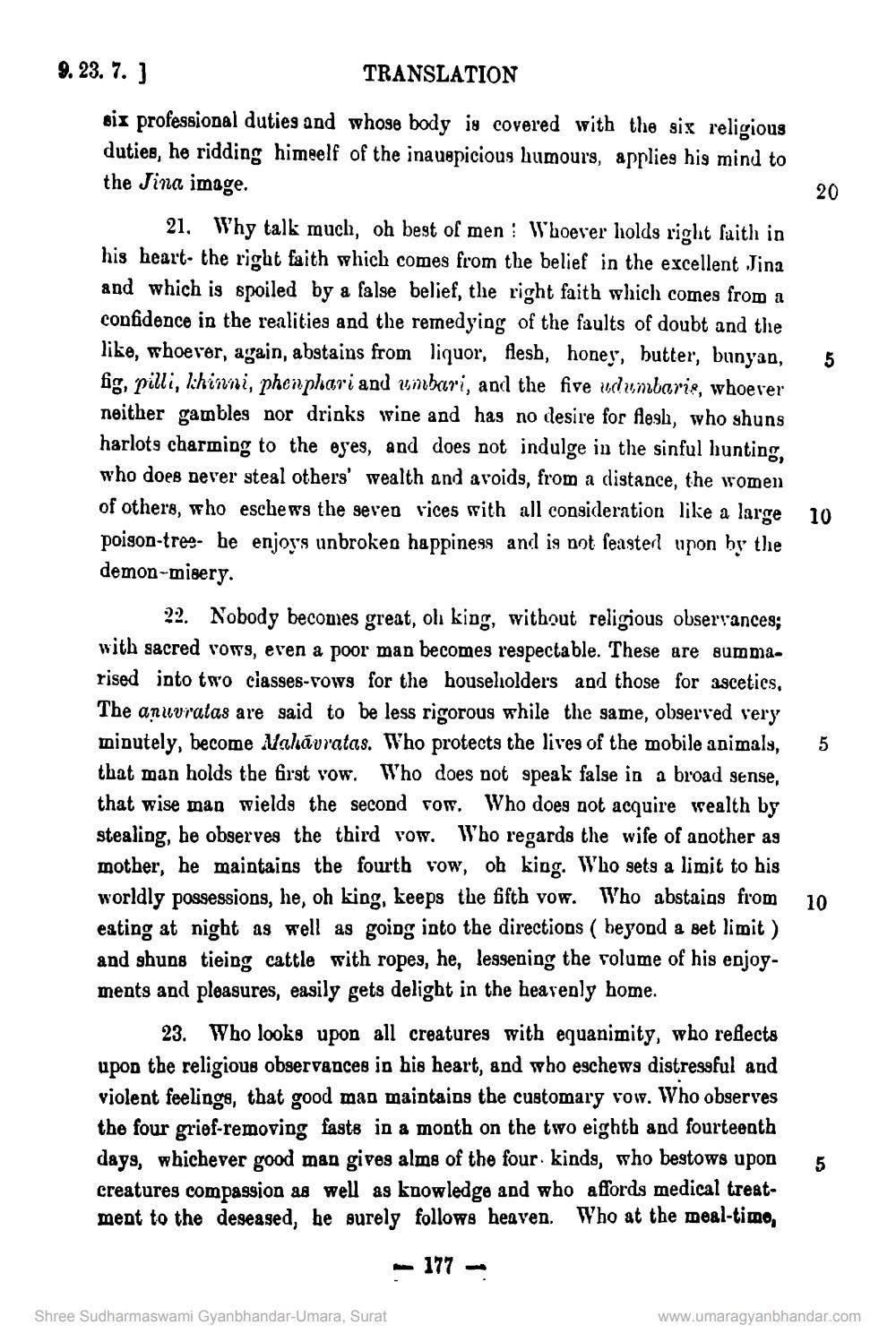________________
9. 23. 7. 1
TRANSLATION
20
5
10
six professional duties and whose body is covered with the six religious duties, he ridding himeelf of the inauspicious humours, applies his mind to the Jina image.
21. Why talk much, oh best of men : Whoever holds right faith in his heart- the right faith which comes from the belief in the excellent Jina and which is spoiled by a false belief, the right faith which comes from a confidence in the realities and the remedying of the faults of doubt and the like, whoever, again, abstains from liquor, flesh, honey, butter, bunyan, fig, pilli, lhinni, phenphari and umbari, and the five udumbarię, whoever neither gambles nor drinks wine and has no desire for flesh, who shuns harlots charming to the eyes, and does not indulge in the sinful hunting, who does never steal others' wealth and avoids, from a distance, the women of others, who eschews the seven vices with all consideration like a large poison-treo. he enjoys unbroken happiness and is not feasterl upon hy the demon-misery.
22. Nobody becomes great, oli king, without religious observances; with sacred vows, eren a poor man becomes respectable. These are summa. rised into two classes-vows for the householders and those for ascetics, The anuvralas are said to be less rigorous while the same, observed very minutely, become Vahávratas. Who protects the lives of the mobile animals, that man holds the first vow. Who does not speak false in a broad sense, that wise man wields the second row. Who does not acquire wealth by stealing, he observes the third row. Who regards the wife of another as mother, he maintains the fourth row, oh king. Who sets a limit to his worldly possessions, he, oh king, keeps the fifth vow. Who abstains from eating at night as well as going into the directions ( beyond a set limit) and shuns tieing cattle with ropes, he, lessening the volume of his enjoyments and pleasures, easily gets delight in the heavenly home.
23. Who looks upon all creatures with equanimity, who reflects upon the religious observances in his heart, and who eschews distressful and violent feelings, that good man maintains the customary vow. Who observes the four grief-removing fasts in a month on the two eighth and fourteenth days, whichever good man gives alms of the four. kinds, who bestows upon creatures compassion as well as knowledge and who affords medical treatment to the deseased, be surely follows heaven. Who at the meal-timo,
- 177 -
5
10
5
Shree Sudharmaswami Gyanbhandar-Umara, Surat
www.umaragyanbhandar.com




